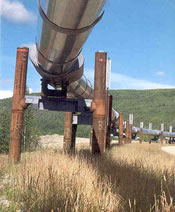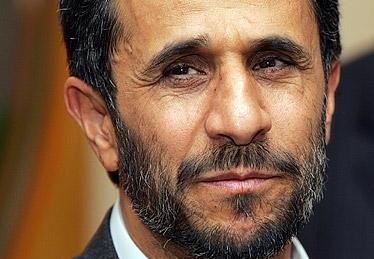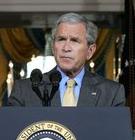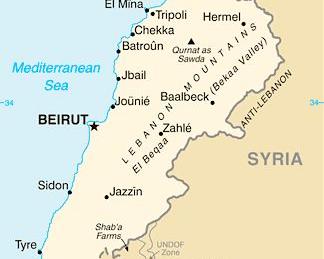One of the arguments advanced to justify Israel’s recent peace overtures to Syria was that a security guarantee might empower Damascus to sever its close ties to Tehran. Yesterday’s announcement of a new Syrian-Iranian defense cooperation pact, though, should put that one to rest. Some people will point to this as proof that a peace deal with Syria is unrealistic. What’s unrealistic, though, is the idea that we will somehow isolate Iran through a policy of containment that neither Iran’s allies, nor some of our own, have an interest in pursuing. At some point, it would be useful to realign […]
Iran Archive
Free Newsletter
As an aside to Peter Kiernan’s WPR article on Iran looking towards the East for its gas pipeline projects, I just came across this brief ISNA wire report that Iran will begin exporting Liquid Natural Gas (LNG) to China and Europe in 2010. The disadvantages of LNG, from what I understand, are the processing and transportation costs. The advantage is that, once processed, it becomes a much simpler bilateral commodities transaction, as opposed to the longterm, multilateral agreements required by a pipeline. Asia’s demand for energy, as Kiernan points out, is already undermining American attempts to isolate Iran. That will […]
The Lowy Interpreter has a must read guest post about what Iran’s nuclear negotiators have learned from the country’s hair-raising traffic maneuvers. Here’s my favorite: Principle 2: Wear them down Driving — When you drive the wrong way down a one-way street, and meet someone coming the other way, turn your engine off and start eating lunch. Eventually they will reverse. Nuclear negotiating — Take extended periods to ‘review’ new proposals. Hand out ambiguous promises of new cooperation. Your nuclear program has been the flavour of the month for a while. It won’t be forever. Clever stuff, but also revealing. […]
While on the subject of negotiating with Iran (we were on the subject, right?), via Jason Sigger of Armchair Generalist comes this Zbig Brzezinski-William Odom WaPo op-ed titled “A Sensible Path on Iran.” Their approach is just that, sensible, even if it can be accused of being optimistic about the possibilities that a Grand Bargain could offer. It’s important not to be naive about the Iranians (Ali Larijani, for example, while a bitter domestic rival of Mahmoud Ahmadinejad, was nonetheless far from a cream puff when it came to EU and IAEA negotiations), something I emphasized yesterday on Sirius’ Blog […]

Earlier this month, Royal Dutch Shell and Spain’s Repsol pulled out of a proposed Iranian natural gas development project that was estimated to be worth over $10 billion. The decision by the two European energy firms to pull out of phase 13 of the South Pars project was seen as a setback for Iran’s efforts to court foreign interest in its energy sector at a time when the Bush administration is actively trying to discourage it. Shell and Repsol executives did not publicly comment on their reasons for pulling out of South Pars. But whether it was due to concerns […]

Two years ago, the U.N. created the “Human Rights Council” to replace the erstwhile “Human Rights Commission.” One of the instruments that the new body was given in order to overcome the glaring failings of its predecessor is the so-called country review. In the periodic reviews, the human rights record of each of the 192 U.N. member states is examined and recommendations are made for improvement. The review sessions are supposed to be marked not by the rich Western democracies making paternalistic and condescending reproaches against the world’s most brutal governments and most notorious rogue states, but rather by a […]
In case you haven’t noticed the front page, WPR has got a pretty solid one-two punch of must read articles today. The first, by Charles Crain, discusses the ways in which the Obama-McCain dust up over negotiating with enemies like Iran is divorced from the reality that we’re already negotiating with enemies like Iran. The second, by Brian Burton, dissects the ways in which the consensus view of Iran as the source of all the Middle East’s problems is divorced from the reality that the Middle East is the source of all the Middle East’s problems. I’d been meaning to […]

The sniping between Barack Obama and the GOP over negotiating with rogue state leaders and other unsavory characters is even more removed from reality than the usual campaign rhetoric. The question of whether a President Obama would sit down with Iranian leaders grabs attention, but is largely irrelevant. Far more relevant is the fact that in Iraq — the highest-stakes arena of U.S. foreign policy — Americans already routinely negotiate with their enemies. From American soldiers and Marines meeting with Sunni insurgents and Shiite militiamen, to American diplomats meeting with their Iranian counterparts, negotiation has been at the heart of […]

David Ignatius’s May 15 Washington Post column, “The Squeeze on the Middle East’s Moderates,” is yet another manifestation of American elites’ fallacious and increasingly dangerous tendency to blame Iran for all of the troubling developments in the Middle East. The moderate “center” of Arab politics is portrayed as “under siege” in Lebanon, Iraq, and the Palestinian territories by forces variously described as “Iran’s proxies,” “Tehran’s friends,“ and “Iranian-backed extremists.” This overgeneralization of the many complex problems the United States must confront in the region is a recipe for Middle East policies that ignore important local factors driving upheaval in the […]
What’s it like being a harmless tourist in Iran? Judging by this post at the Lowy Interpreter, it sounds like a weird cross between a police state and Footloose. I’ve always felt that the fatal flaw of theocracy is that, by criminalizing human nature, it subverts the legitimacy of its own authority. Most people want to follow the rules. The two sure ways of keeping them from doing that is to make the rules so cumbersome that it pays to break them (e.g. French labor laws), or else by defining infractions so broadly as to include people in the criminal […]
The fact that the Israeli-Syrian discussions mediated by Turkey, which were confirmed today, are taking place less than a year after Israel’s airstrike on an alleged Syrian nuclear facility is pretty mindboggling. It shows that Israel is neither afraid to address what it considers security threats with force, nor to explore the possibility of negotiated resolutions. For now, the approach is limited to the “symptoms” (Syria, Hamas, if not yet Hizbollah), and not the “disease” (Iran). As Kevin Drum points out, though, any deal that is reached will depend on America buying in. And since Syria recently made it clear […]
Via Andy Grotto of Arms Control Wonk, ISIS just leaked the much-talked about but never-before seen Iranian proposal (.pdf) to resolve regional and global conflict (but more importantly the standoff over its nuclear program). It’s a pretty bland document, but with a little reading between the lines, it looks like Tehran is basically offering to fold its nuclear program into an international consorium of uranium enrichment centers, and to expand IAEA oversight of the Iranian-based component of the resulting network. Those offers, though, come hand in hand with a call for nuclear disarmament and “[i]mproved supervision by the IAEA over […]
The back and forth between Barack Obama and John McCain over what kind of threat Iran represents, and how to respond to it, is instructive for the ways in which it illustrates the degree to which 9/11 sidetracked our national conversation over foreign policy and national security. That’s perfectly understandable given the magnitude of the trauma. But as with all traumatic events, there comes a time when they need to be integrated back into the broader historical context, otherwise we run the risk of responding more to internal stimuli (ie. our perception) rather than to external stimuli (ie. reality). The […]

It has become impossible to credibly argue that the Bush Administration’s Middle East policies have advanced the national interests of the United States. After shifting enormous resources toward addressing the problems of the region following the events of Sept. 11, 2001, and after cautioning patience through the “birth pangs of democracy,” the results have become clear. On every issue that the administration has prioritized — promoting Arab-Israeli peace, liberating Lebanon from Syrian and Iranian influence, democratizing Egypt, stabilizing Iraq, and containing Iran — America’s foes have grown stronger and its allies have grown weaker. Even more troublingly, virtually all of […]
It’s worth noting that at the same time that Col. (and soon-to-be General) H.R. McMaster was telling an American Enterprise gathering that Iran has been carrying out targeted assassinations of Iraqi officials, three Iranian embassy staff and their Iraqi driver were fired on outside Iran’s Baghdad embassy. Iran blamed the attack, in which two of the employees were seriously wounded, on American security lapses. Setting aside the question of whether or not to broadly engage Iran through direct diplomatic negotiations, the need to engage Iran on the more limited question of Iraq security has already been recognized. So far, the […]

While the world’s diplomatic and media attention focused on the natural disaster in Burma, a major political and strategic move reshaped the Middle East, handing yet another defeat to the West and a crucial victory to Iran: In the blink of an eye, the Islamic Republic of Iran conquered Lebanon. The mop up operations have not ended, but the key outcome is clear: Hezbollah, the militia created by Tehran and loyal to Iran’s leading Ayatollah, has gained control of Lebanon. The crisis had been simmering for months, but the boiling point came on May 7, when Hezbollah militias — heavily […]
There was some mention in the American press about Iran’s role in brokering the ceasefires in both Basra and more recently in Badr City. This is the first time I’ve actually seen Fars, the official Iranian news agency, brag about it call attention to it. Their analysis of the Iraqi government’s double bind bears citing in full: The Iraqi government has been forced to balance its allegiances to the US and Iran. Supported by American troops and reconstruction funds, Baghdad is obliged to pay attention to the US demands. But the Iraqi government cannot give in to Washington’s illegitimate demands […]
